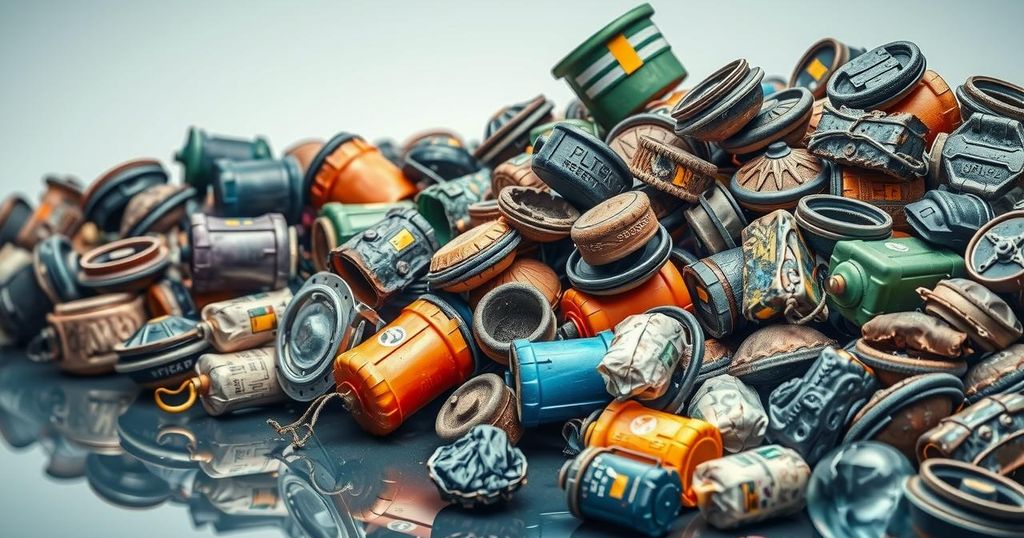Lead poisoning is a major issue across Africa, affecting millions, particularly children, due to poor waste management and informal recycling of lead-acid batteries. Despite international regulations, significant lead exposure persists, calling for urgent action. Enhanced investment in infrastructure and stringent enforcement of policies is necessary to protect public health and ensure a cleaner environment for future generations.
Lead poisoning represents a critical environmental and public health challenge across Africa. Despite the existence of robust regulations under the Basel and Bamako Conventions, the continent continues to struggle with significant lead contamination. The metal is prevalent in various everyday products, such as paints, batteries, and cosmetics, but excessive exposure can severely harm human health, especially in children, and contaminate soil and food sources.
The United Nations reports alarming statistics; over 55 million children in Sub-Saharan Africa exhibit blood lead levels above the World Health Organization’s safety threshold. Lead poisoning often results from mismanaged electronic waste and used lead-acid batteries, with informal recycling practices exacerbating the issue by releasing harmful lead particles into communities.
As the global demand for lead and lead-acid batteries rises, unsafe recycling methods have increased, impacting both ecological health and human wellbeing. For example, contamination from lead mining and battery processing in countries such as Nigeria, Senegal, and Zambia highlights the widespread nature of the problem. The plight of communities, like those in Mombasa affected by a lead-acid battery smelting plant, underscores the need for effective hazardous waste management policies.
International efforts, including the WHO’s International Lead Poisoning Prevention Week, emphasize the urgency of tackling this issue. UNEA Resolution 3/9 aims to eliminate lead paint exposure and enhance battery management. However, significant investment in infrastructure and awareness campaigns alongside strict enforcement is vital for these initiatives to succeed. Ultimately, fostering a lead-free future necessitates a collective commitment to protect vulnerable populations and the environment, ensuring a healthy future for generations to come.
Lead poisoning remains a pervasive issue in Africa, with millions, particularly children, affected by elevated blood lead levels. Despite international efforts and regulations designed to manage hazardous waste and protect public health, informal recycling practices and poor waste management continue to contribute to widespread lead contamination. The severity of the crisis necessitates urgent action at both legislative and community levels, highlighting the importance of proper infrastructure and stringent policies to safeguard environmental and public health.
In conclusion, lead poisoning remains a pressing concern in Africa, presenting severe risks to public health and the environment. Addressing this crisis requires collaborative efforts, supportive legislation, and significant investments in effective waste management systems. By prioritizing the protection of vulnerable populations and curbing lead exposure, stakeholders can work towards creating a safer, lead-free future for all.
Original Source: www.un.org






